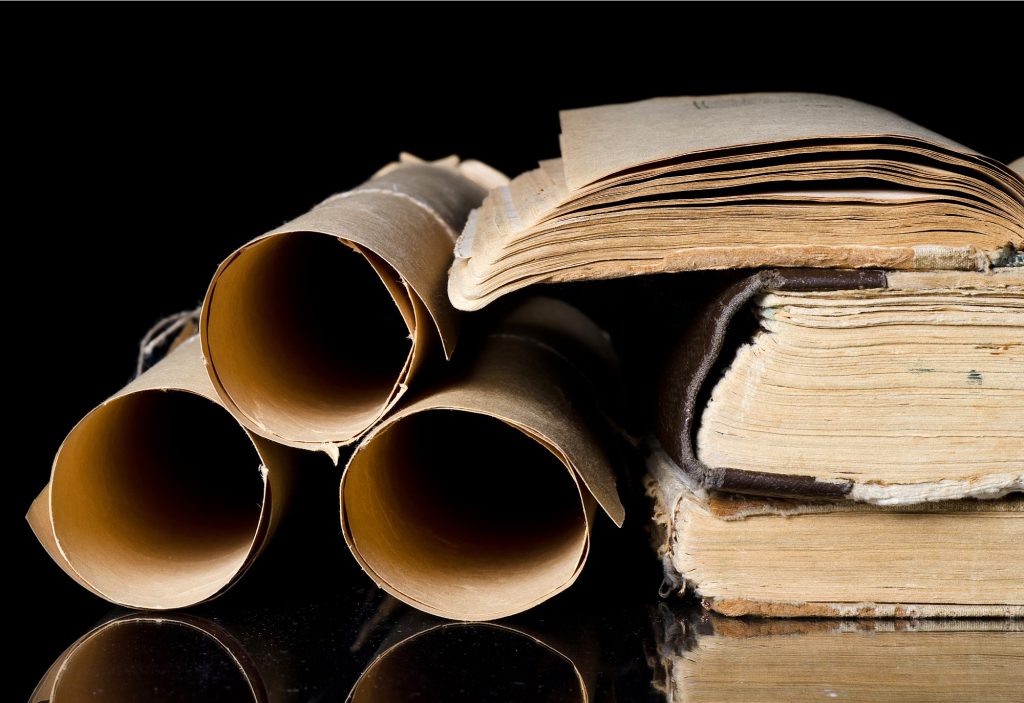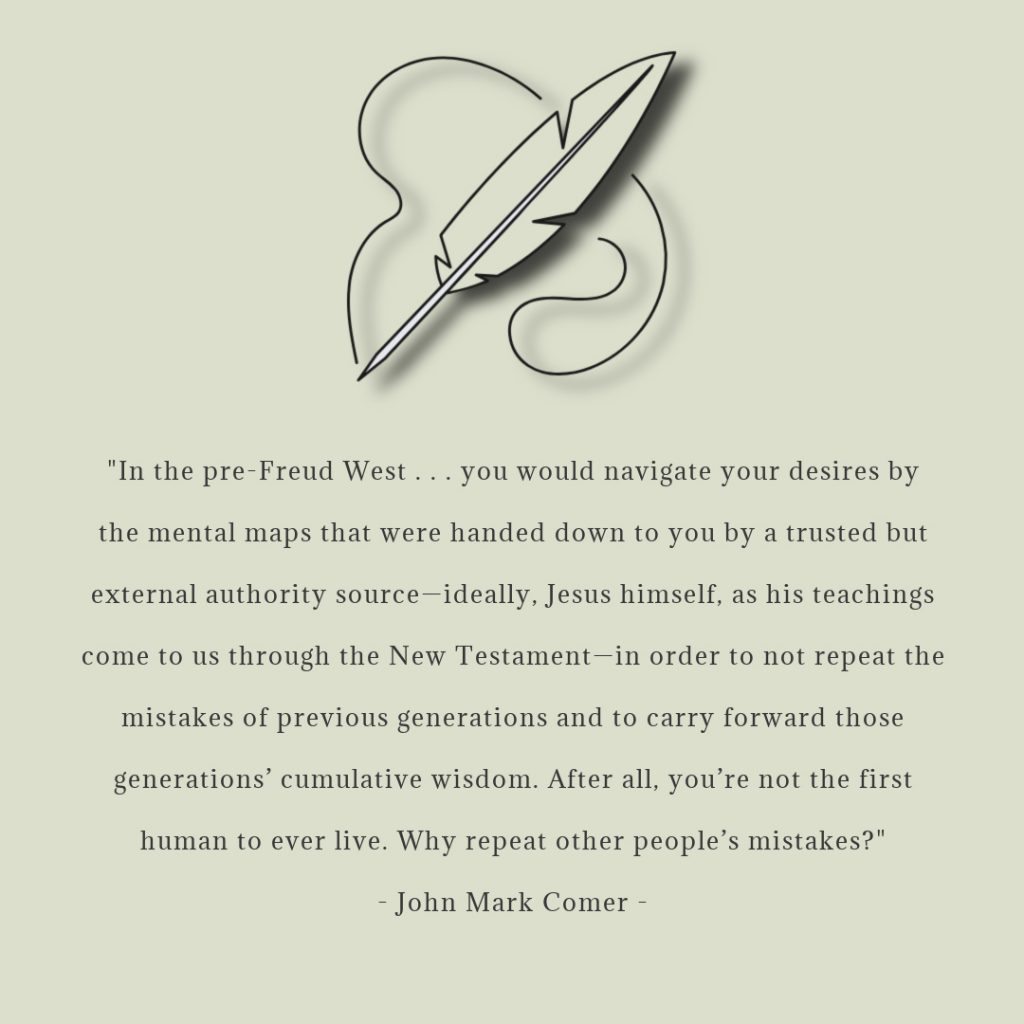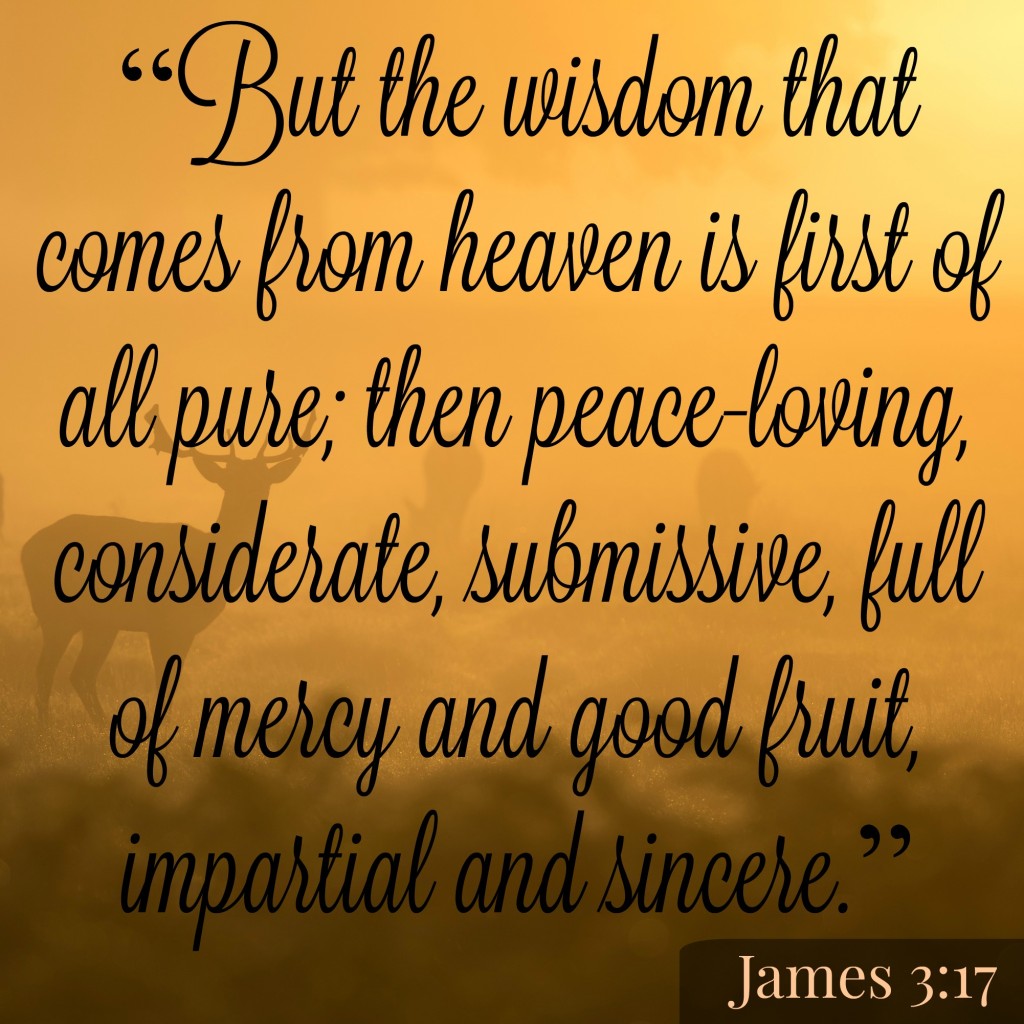I doubt there has ever been a teenager who didn’t, at least during some point during their adolescent years, assume they knew more than their parents. It happened to the best of us. (Sorry, Mom and Dad!) Thankfully, as we got a few years and hardships under our belts, and our prefrontal cortexes reached maturation, we were able to recognize our naïveté stupidity. Well, most of us.
When it comes to self-awareness about our own cognitive abilities, we tend to grow out of thinking we know it all. But many of us still hold staunchly to the belief that even though we (as individuals) don’t know everything, WE (as a collective society) know more than THEM (people of the past). We assume that our knowledge is superior to that of previous generations, that we are better informed and therefore better equipped for decision making and all things “wisdom.”
This is where we would be wrong.

I admitted a few weeks ago (in a post about pluralistic ignorance) to my love of discovering the names and data behind common phenomena. Here’s another term I learned about recently: chronological snobbery.
The term was coined by C.S. Lewis to describe the innate human bias to think we are smarter than those who came before us and that new ideas are consequently truer and better than old ones.
It’s easy to see why we would think this. As science and technology have advanced, so too has our understanding of the world and our access to this understanding. In my own lifetime, I’ve seen the ability to know and to learn grow exponentially. Thanks to the device I carry on my body at all times, I am able to find the answer to almost any question I might think to ask. But as John Mark Comer points out in his excellent book Live No Lies, “research says that human beings are no more intelligent than we were thirty thousand years ago. Our cumulative knowledge has grown by leaps and bounds, yes . . . but knowledge is not the same thing as intelligence, which is still not the same thing as wisdom.”
Even as our knowledge data base has grown, our ability to apply that knowledge has started to shrink. Frighteningly, recent data suggest that the average IQ has been falling in the West since the 1990s (yikes)! Theories abound as to why this is the case. While I can’t say that technology is entirely to blame, I’ll admit that my own spelling has become abysmal since the advent of spellcheck, and that my felt need to memorize (and therefore my ability to memorize) important facts and lists has all but vanished in the wake of Wikipedia’s introduction into my day-to-day life. And don’t even ask me to attempt to get to the store (the one I visit a couple times each month) on my own; I have GPS for that!
Many of us (I’m including myself here) have entrusted such huge parts of our brains to systems and algorithms that we’ve forgotten how to utilize those brains for ourselves. And our brains are not the only casualties: we’ve also lost our faith in institutions, our willingness to engage tried-and-true methods, our respect for history, and our valuing of the ideas and experiences of those who came before us. All because we assume we know more and therefore we know best.

I think often about people from the past. (Past meaning a generation ago, but also dozens or hundreds of generations ago.) Their worlds were smaller, their lives much simpler. Most knew fewer facts than we do today; many couldn’t even read a list of facts if it were presented to them.
What they did know was what they could feel and see and experience. (And without the distractions of the twenty-first century, I’m certain their eyes saw much more thoroughly than our modern ones, that their experience were richer, more memorable, and more formative. ) They knew the stories passed to them by their fathers and grandfathers, the essential skills taught to them by their mothers, the rhythms of nature that dictated their routines, and the societal ethics that held them all together.
The men and women of history carried an eagerness to seek advice from the village elders. They held a willingness to believe something they could not prove with a virtual fact check. They possessed within them a faith in God (or at least in a Higher Power) who held authority over all. They were people endowed with wonder, and resilience, and interconnection, and faith.
We’ve lost so much of that now. Today, we can take care of ourselves, so we do, with little thought to asking for support or advice. Why read the classics when Twitter is more relevant? Why confer with Mom when a Google search is so much more convenient and conclusive? Why pray when I have my own means of providing for my daily sustenance?
Don’t get me wrong, I have no desire to time travel into the past. I love my thermostat and my Kindle and my modern medicine far too much. And no, the irony of my typing out this blog post about historic nostalgia . . . on my laptop . . . for you to read on your devices . . . via the magic of the internet . . . is not lost on me. I’m trying hard (and mostly succeeding) at not viewing the past with too much rosiness. But I do see how progress has robbed us of the wisdom, humility, and curiosity that were once much more abundant. And I’m willing to recognize that my knowledge (collective and individual) has not always translated to wise choices or rightful actions or a better life. My perspectives are perhaps not (probably not) any truer or better than the ideas that came before. . . and it would be the height of arrogance to assume they were.
The writer of Ecclesiastes (likely Solomon, the wisest man who has ever lived) tells us there is nothing new under the sun. That doesn’t seem possible: I’ve witnessed one or two new things just this morning. But the deepest, truest, most real things have always been and always will be. Our ancestors knew this, much better than we know it today.

Father God, help us to lay aside our assumptions that we know more and we know best. Thank you for the gifts of wisdom and insight handed down through the generations. May we humbly acknowledge our own shortsightedness, laying aside our chronological snobbery for the sake of timeless truth. Make us curious and humble, Lord God, and fill us with your wisdom.